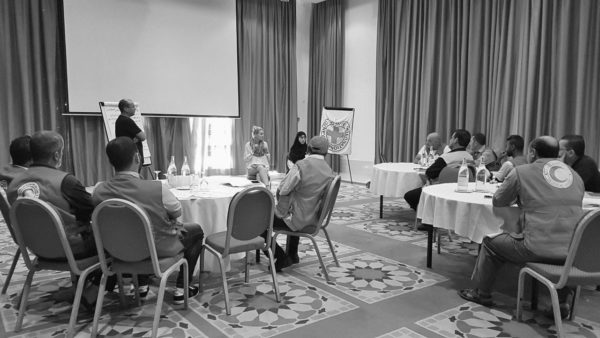Learn more about me
Since 2018, I have shared my time between my therapeutic work – conducted in my private practice located in Brussels – and consulting missions for humanitarian organizations in Brussels and overseas.
I am specialized in the field of Psycho-traumas, consisting in sudden experiences of extreme violence that threaten the psychological and physical integrity of an individual or a group, and leave the victim unable to react, stuck with a strong sense of helplessness.
My work also focuses on issues such as accumulative stress, vicarious trauma (or secondary trauma), anxio-depressive disorders, grief and interpersonal relationships.
In my private practice or via Skype, I provide psychological support to adults as well as to expatriate staff and humanitarian workers. Note that I work in both French and English.
My goal is to accompany you through difficult times, and guide you progressively towards peace of mind, next leading to personal balance. In that process, we will take into consideration your existing coping strategies and resources and will work together to build new ones.
Degrees and work experiences
I graduated with honors as a clinical psychologist from the University Paris X-Nanterre (Master II Professional) in 2007. In 2015, I completed a training in EMDR therapy (Eye Movement Desensitization and Reprocessing) with EMDR Europe. A year later, I graduated in Hypnosis Therapy from the National Guild of Hypnotherapists.
Later, I took some victimology classes in Belgium as a free student and I am currently being trained in Psychoanalytic Psycho-traumatology at Chapelle-aux-Champs.
I did internships and worked in France and Belgium in psychiatric hospitals as well as prisons (Maison d’Arrêt des Hauts-de-Seine, Nanterre Psychiatric Hospitals and Day Care Center for Adults, Jean Titeca Hospital, La Ramée Clinic) , as well as non-profit organizations such as Doctors of the World, in their Primary Reception and Orientation Center (CASO).
Then I worked in the humanitarian field as a psychologist and as a Coordinator for Mental Health and Psychosocial projects in countries undergoing armed conflicts or their aftermath : Liberia, Democratic Republic of Congo, Kenya, South Sudan, Central African Republic, Mali, Haiti, Syria, Lebanon, West Bank and the Gaza Strip (Palestine), Libya and more recently, Uganda and Iraq. The organizations I have worked for include : Doctors Without Borders, the International Committee of the Red Cross, Action Against Hunger, Center for Victims of Torture (CVT) and RedR UK.
Learn more about my professional journey :
Humanitarian Work
Field interventions during critical incidents.
Trainings
I frequently provide training sessions for non-specialists (in the Psychology field).
Publications
I write articles about my current work in Brussels and overseas.



